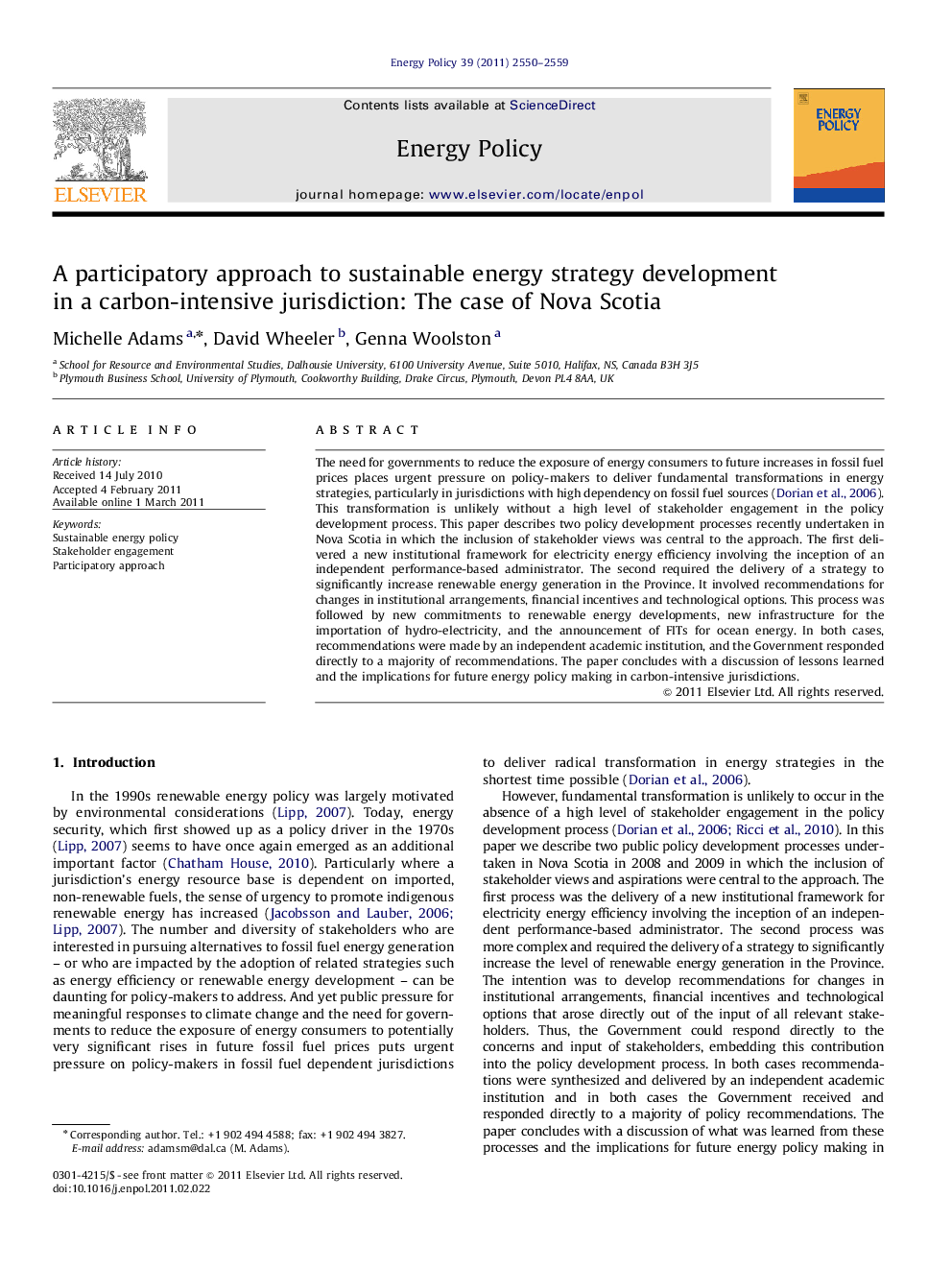| کد مقاله | کد نشریه | سال انتشار | مقاله انگلیسی | نسخه تمام متن |
|---|---|---|---|---|
| 995878 | 936279 | 2011 | 10 صفحه PDF | دانلود رایگان |

The need for governments to reduce the exposure of energy consumers to future increases in fossil fuel prices places urgent pressure on policy-makers to deliver fundamental transformations in energy strategies, particularly in jurisdictions with high dependency on fossil fuel sources (Dorian et al., 2006). This transformation is unlikely without a high level of stakeholder engagement in the policy development process. This paper describes two policy development processes recently undertaken in Nova Scotia in which the inclusion of stakeholder views was central to the approach. The first delivered a new institutional framework for electricity energy efficiency involving the inception of an independent performance-based administrator. The second required the delivery of a strategy to significantly increase renewable energy generation in the Province. It involved recommendations for changes in institutional arrangements, financial incentives and technological options. This process was followed by new commitments to renewable energy developments, new infrastructure for the importation of hydro-electricity, and the announcement of FITs for ocean energy. In both cases, recommendations were made by an independent academic institution, and the Government responded directly to a majority of recommendations. The paper concludes with a discussion of lessons learned and the implications for future energy policy making in carbon-intensive jurisdictions.
Research highlights
► Fundamental transformations in energy policy require stakeholder engagement to be successful.
► We describe two policy development processes where stakeholder views were key considerations.
► The first delivered a new institutional framework for electricity energy efficiency.
► The second delivered a strategy to significantly increase renewable energy generation.
► In each case, the Government directly responded to the majority of recommendations.
Journal: Energy Policy - Volume 39, Issue 5, May 2011, Pages 2550–2559